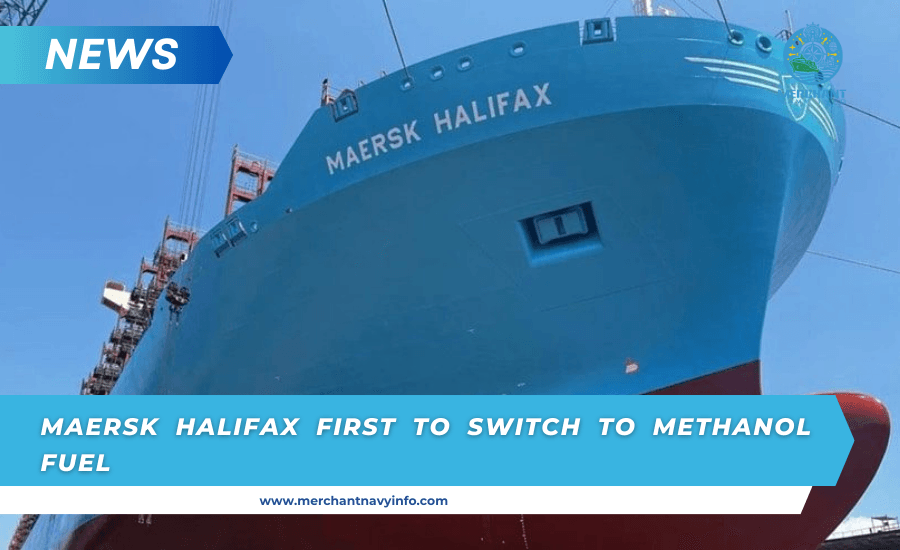
Maersk Halifax makes history as the first large container ship to switch to methanol fuel.
Maersk Halifax announced on Monday that it has become the first large container ship to switch to methanol fuel after the vessel was built in 2017.
The comprehensive conversion was completed in 88 days at the Xinya Shipyard in Zhoushan, China, at the end of October. The project involved major modifications to the vessel, including installing new fuel tanks, a fuel preparation room, and a fuel supply system.
To accommodate these changes, the vessel’s hull was also lengthened by 15 meters, increasing its overall length to 368 meters and its capacity from approximately 15,000 TEUs to 15,690 TEUs.
“We are pleased to announce that Maersk Halifax has been successfully converted to a dual-fuel methanol vessel and after completing sea trials, Maersk Halifax has resumed operations and is currently serving our customers in the trans-Pacific trades,” said Leonardo Sunzio, Fleet Management and Technology Director at Maersk Halifax.
MAN Energy Solutions carried out the engine conversion, which focused on replacing machine parts to enable methanol operation. This innovative approach aligns with Maersk’s ambitious climate goals, which include achieving net zero emissions by 2040 and meeting the short-term 2030 target in line with the Paris Agreement.
“Since setting our ambitious climate goal of achieving net zero emissions by 2040, we have been exploring the possibility of retrofitting existing vessels with dual-fuel engines,” said Sunzio. “Next year, we will learn from the first conversions of large ships and the conversion of existing ships can be an important alternative to new facilities as we transition from fossil fuels to lower-emission fuels.”
Maersk Halifax is one of 11 Maersk Hong Kong Class vessels that left the shipyard on November 4.
Maersk’s first successful conversion announcement in June 2023 marked a major step forward in the shipping industry’s efforts to reduce its carbon footprint and adopt cleaner fuel alternatives to meet its stringent emissions targets.









